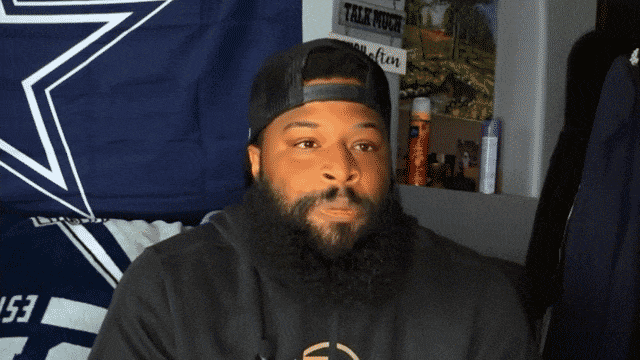“Texas Tough” McKay Law
Texas Uber Accident Lawyer
Navigating the aftermath of an Uber accident can be overwhelming, but McKay Law is here to help. As a trusted Texas Uber accident lawyer, McKay Law combines exceptional legal expertise with an unwavering commitment to justice. They understand the unique complexities of rideshare accident cases and work tirelessly to advocate for your rights. Known for their personalized approach, McKay Law ensures every client receives the care and attention they deserve. Their dedication extends beyond legal representation—they guide victims through every step of the process with professionalism and empathy. With a focus on securing the fair compensation you’re entitled to, McKay Law stands as a steadfast partner in your pursuit of justice.
NO FEES UNLESS WE WIN!
We only get paid when you get paid.
Receive Immediate Medical Care
Get the medical attention you need with no out-of-pocket cost in most cases.
24/7 Access To Us
We are here for you 24/7 so you can focus on healing.
Client Satisfaction
McKay Law has a reputation to be proud of with 300+ 5 star Google Reviews.
Texas Uber Accident Attorney | McKay Law
When you’re involved in an Uber accident, the aftermath can feel overwhelming and confusing. From mounting medical bills and ongoing treatments to lost wages, vehicle damage, and the emotional toll of the incident, the challenges can seem insurmountable. You might find yourself struggling to keep up with doctor appointments, therapy sessions, or even figuring out how to pay for your daily needs while recovering. Navigating the legal process on top of everything else may feel like far too much to handle—but you don’t have to face it alone.
At McKay Law, we are here to fight for your rights and ensure you get the compensation you deserve. Our experienced team specializes in handling the complexities of rideshare accident claims, including dealing with uncooperative insurance companies, determining liability, and understanding the unique laws surrounding Uber accidents. We know how confusing it can be to figure out whether the driver, Uber, or another party is responsible, and we’re here to clarify your options and maximize your claim.
We are committed to guiding you through every step of the process, providing personalized support and expertise to help you rebuild your life. From the moment you reach out to us, we take on the heavy lifting so you can focus on what matters most—healing and moving forward. Let us take the burden off your shoulders and work tirelessly to secure justice and the compensation you need to move past this difficult time. At McKay Law, your well-being is our priority.
Understanding Uber Accidents in Texas
Uber accidents in Texas, like in other states, involve unique legal and safety considerations due to the nature of ridesharing services. Here’s a general overview:
1. Common Causes of Uber Accidents
- Distracted Driving: Uber drivers often rely on apps for navigation and communication, which can lead to distractions.
- Fatigue: Many drivers work long hours or drive for multiple platforms, increasing the risk of fatigue-related accidents.
- Traffic Violations: Speeding, failure to yield, and other violations can contribute to accidents.
- Third-Party Negligence: Accidents may also involve other drivers, pedestrians, or cyclists.
2. Legal Considerations
- Insurance Coverage: Uber provides insurance coverage for drivers, but the coverage depends on the driver’s status at the time of the accident:
- Offline: The driver’s personal insurance applies.
- App On, No Ride Accepted: Limited liability coverage from Uber.
- Ride in Progress: Uber’s $1 million liability policy applies.
- Liability: Determining fault can be complex, involving the driver, Uber, or third parties.
- Passenger Rights: Passengers injured in Uber accidents can file claims against the driver, Uber, or other involved parties.
3. Texas-Specific Factors
- State Laws: Texas follows a “fault” system for car accidents, meaning the at-fault party is responsible for damages.
- Statute of Limitations: Victims typically have two years to file a personal injury lawsuit in Texas.
- Rideshare Regulations: Texas has specific laws governing rideshare companies, including background checks for drivers and vehicle inspections.
4. Safety Measures
- Driver Screening: Uber conducts background checks and driving record reviews for its drivers.
- In-App Features: Safety features like GPS tracking, emergency assistance, and ride-sharing with friends are available.
- Passenger Awareness: Passengers are encouraged to verify driver details and use seat belts.
Lindsey McKay Takes Texas Uber Accident Cases Seriously
When you step into an Uber, you expect convenience and safety. What you don’t anticipate is the possibility of being involved in an accident that leaves you facing physical, emotional, and financial challenges. That’s where Lindsey McKay comes in. Known for her extensive experience and unwavering commitment, Lindsey McKay is a dedicated advocate for victims of Uber-related accidents across Texas.
With an expert understanding of the complexities involved in rideshare accident cases, Lindsey McKay works tirelessly to help her clients achieve justice and fair compensation. Whether it’s dealing with insurance companies, unraveling tricky liability issues, or ensuring that clients are heard, Lindsey approaches every case with compassion and professionalism.
Why Rideshare Accident Cases Require Expertise
Uber has become an integral part of transportation in Texas, offering riders convenience at the touch of a button. However, when accidents occur, the situation becomes more complex than a standard car accident. There are unique challenges in rideshare cases, such as multiple parties potentially being liable, and dealing with insurance policies that are often confusing and difficult to interpret.
One major complication is determining whose insurance covers what. For example:
- If the Uber driver was active on the app and carrying a passenger during the accident, Uber’s $1 million insurance policy may come into play.
- If the driver was logged into the app but without a passenger, coverage limits change significantly.
- If the driver was not logged into the app, their personal insurance may be the only point of recourse.
These scenarios highlight why having the right legal representation matters. Lindsey McKay has a deep understanding of these nuances and the intricate laws specific to Texas rideshare accidents. Her ability to untangle complex liability and insurance issues ensures that her clients receive the compensation they are entitled to.
Lindsey McKay’s Approach to Rideshare Cases
1. Comprehensive Case Assessment
Every case begins with a thorough investigation. Lindsey McKay meticulously gathers evidence such as police reports, witness statements, and ride logs from Uber, all while ensuring her clients feel supported and informed throughout the process.
2. Dealing with Insurance Companies
Insurance providers are not always looking out for the best interests of accident victims. Lindsey knows how to counter lowball settlement offers and unreasonable claims denials. Her years of experience enable her to negotiate powerfully on behalf of her clients, ensuring they are not left accepting less than they deserve.
3. Understanding Liability Issues
Determining who is at fault in an Uber accident isn’t always straightforward. Was it the Uber driver, another driver, or perhaps a combination of factors? Lindsey leverages her in-depth knowledge of Texas traffic and rideshare laws to establish liability, ensuring her clients have a solid case.
4. Advocating for Fair Compensation
Rideshare accidents can come with significant losses, from medical bills and lost wages to pain and suffering. Lindsey McKay fights for fair compensation that reflects the full scope of her clients’ damages, helping them move forward with their lives.
Compassion That Sets Lindsey McKay Apart
Legal expertise alone isn’t enough when you’re dealing with the aftermath of an Uber accident. Victims need more than a skilled attorney—they need someone who genuinely cares. Lindsey McKay takes a compassionate approach, treating each client as an individual rather than just another case file. She listens closely to their stories, ensuring their voices are heard and their concerns are addressed.
This personalized approach is why so many Texans trust Lindsey McKay during one of the most challenging times of their lives. Knowing that you have someone in your corner who is not only an expert but also empathetic can make all the difference.
The Importance of Timely Legal Action
Time is of the essence after an Uber accident. In Texas, there are strict deadlines for filing personal injury claims, and waiting too long could mean losing your right to seek compensation. Evidence can disappear, witnesses’ memories can fade, and insurance companies may use delays to their advantage. That’s why it’s crucial to consult an experienced attorney as soon as possible. Lindsey McKay understands the urgency of these situations and moves quickly to secure the information and resources needed to build a strong case. Her prompt action helps ensure that your rights are protected from day one.
How Lindsey McKay Stays Ahead of Rideshare Industry Changes
The rideshare industry is constantly evolving, with new laws, policies, and insurance regulations introduced every year. Lindsey McKay makes it a priority to stay informed about these changes, actively participating in legal seminars, industry forums, and continuing education. By staying up to date on the latest developments, she ensures her clients benefit from cutting-edge strategies and the most current legal protections. Lindsey’s proactive approach means that no matter how the rideshare landscape shifts, her clients’ interests are always at the forefront.
Don’t Navigate This Alone—Contact Lindsey McKay Today
If you or a loved one has been involved in an Uber-related accident in Texas, you don’t have to face the aftermath alone. Lindsey McKay is here to provide the guidance, support, and legal expertise you need. With her on your side, you’ll be equipped to handle every twist and turn that these cases often bring.
Don’t wait to get the help you need. Contact Lindsey McKay today for a free consultation and take the first step toward reclaiming your life.
What Are The Most Common Types of Uber Crash Injuries In Texas?
Uber crashes, like other vehicle accidents, can result in a variety of injuries depending on the severity of the collision. Here are some of the most common injuries associated with Uber crashes:
- Whiplash – A neck injury caused by sudden back-and-forth movement.
- Broken or Fractured Bones – Common in high-impact collisions.
- Head Injuries – Including concussions and traumatic brain injuries.
- Spinal Cord Injuries – Leading to potential paralysis or chronic pain.
- Internal Bleeding – Often from blunt force trauma.
- Cuts and Scrapes – From shattered glass or debris.
- Emotional Injuries – Such as PTSD or anxiety following an accident
Understanding the common injuries associated with Uber crashes is crucial for ensuring proper care and recovery. By recognizing these potential risks, passengers can prioritize their safety and make informed choices during their ride. If an accident occurs, promptly seeking medical attention is essential to address both visible and underlying injuries. Professional assistance can make all the difference in achieving a full recovery. Stay vigilant, prioritize your well-being, and remember that expert support is available to help you move forward with confidence.
What Damages Can I Receive from a Texas Uber Accident Claim?
Rideshare services like Uber have made transportation more convenient, but accidents can still happen. If you’ve been injured in an Uber accident in Texas, it’s natural to wonder what compensation you might be entitled to. Understanding the types of damages you can claim is crucial for protecting your rights and recovering the costs related to your injuries.
This guide will cover the categories of damages you can seek, the complexities of Uber’s insurance coverage, and actionable advice for navigating the claims process.
1. Medical Expenses
Medical costs are often the most significant expense following an accident. Whether your injuries required emergency treatment, surgery, physical therapy, or long-term care, these costs add up quickly. As part of a claim, you can recover compensation for:
- Ambulance fees
- Emergency room visits
- Hospital stays
- Prescription medications
- Rehabilitation and therapy
- Assistive devices like wheelchairs or crutches
It’s essential to keep all medical records and bills as evidence to calculate your total expenses correctly.
2. Lost Wages
If your injuries prevent you from working, you may be entitled to recover lost income. This includes both past and future wages. For example:
- Lost income: Any earnings you’ve already lost due to medical appointments or recovery time.
- Lost earning capacity: If your injuries prevent you from returning to your previous role or reduce your ability to work in the future, you could claim for potential lost earnings.
Providing pay stubs, tax returns, or employer statements will help establish your claim for lost wages.
3. Pain and Suffering
Pain and suffering accounts for the physical pain and emotional distress caused by the accident and your injuries. Non-economic in nature, this type of damage considers:
- Chronic pain
- Emotional trauma, including anxiety or depression
- Life-altering physical impairments, such as a disability
Calculating pain and suffering damages is more subjective, typically relying on factors like the severity of your injuries and their impact on your quality of life.
4. Property Damage
If your personal property, such as a car, was damaged during the accident, you can include repair or replacement costs in your claim. This covers expenses like fixing your vehicle, replacing broken parts, or even compensation for a totaled car. For Uber passengers, property damage might also extend to personal items that were affected during the crash. This could include a damaged phone, laptop, or even other valuable belongings that were in your possession at the time of the accident. Be sure to document the damage with photos and receipts, as these will support your claim and help ensure you get fair compensation.
5. Other Costs
You may also pursue compensation for miscellaneous expenses related to the accident, including:
- Transportation to and from medical appointments
- Home modifications if you’re left with a disability
- Professional caregiving services if you require help with daily tasks
If you’ve experienced unique financial burdens, discuss these with your attorney to ensure you include all eligible expenses in your claim.
The Texas Tough Difference
See why so many others choose McKay Law, PLLC
With over 300 five-star reviews, McKay Law, your local Personal Injury Law Firm has earned the trust and gratitude of our clients. Every case we handle is unique, and every client’s story matters. Don’t just take our word for it—hear directly from our clients about their experiences and why they confidently recommend us to others.
Uber Accident FAQs
- Ensure Safety - Move to a safe location if possible and check for injuries for yourself and others.
- Call Emergency Services - Report the accident to the police and request medical attention if needed.
- Document the Scene - Take photos of the vehicles, the accident site, and any visible injuries.
- Exchange Information - Collect contact and insurance information from all involved parties, including the Uber driver.
- Report to Uber - Use the app’s “Trip Issues” section to notify Uber about the accident.
Liability depends on various factors, such as who caused the accident and whether the Uber driver was actively logged into the app. Here are some common scenarios:
- Uber Driver At Fault - If the Uber driver caused the accident, their personal insurance and Uber’s insurance may apply.
- Another Driver At Fault - Claims would typically be filed against the other driver’s insurance.
- Shared Fault - Multiple parties, including the Uber driver and others involved, may share responsibility.
Yes, Uber provides liability coverage, but it depends on the driver’s status at the time of the accident:
- Driver Offline - Uber provides no coverage; only the driver’s personal insurance applies.
- Driver Logged Into the App (No Passenger) - Uber provides a limited third-party liability coverage of up to $50,000 per injury and $100,000 per accident (depending on location).
- Driver Picking Up or Transporting a Passenger - Uber’s $1 million liability coverage applies, including uninsured/underinsured motorist coverage.
Yes, passengers can file claims against Uber’s liability insurance if they sustain injuries while riding in an Uber. This applies regardless of whether the Uber driver or another driver caused the accident.
- Document the Incident - Collect evidence such as photos, witness statements, and police reports.
- Contact an Insurance Adjuster - Report the accident to Uber and the involved parties' insurance providers.
- File With Uber’s Support Team - Use Uber’s online support or app to submit details of the accident and begin the claim process.
- Consult an Attorney - If the process becomes complex, consider seeking legal advice.
The timeline varies depending on the severity of the accident, the cooperation of involved parties, and whether disputes arise. It can range from a few weeks to several months.
Yes, Uber’s $1 million uninsured/underinsured motorist policy ensures coverage for passengers if an uninsured or underinsured driver is at fault.
Uber classifies its drivers as independent contractors, which limits its direct liability in many cases. However, under specific circumstances, you may be able to pursue legal action against Uber. Consulting a lawyer is recommended in such cases.
Pedestrians, bicyclists, and other drivers injured by an Uber driver can file claims against the driver’s insurance or Uber’s liability coverage, depending on the situation.
If you were not at fault, filing a claim against Uber or another party’s insurance typically should not impact your personal insurance premiums. However, you should confirm this with your insurance provider.






